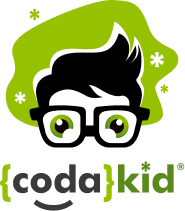More schools around the country have started to prioritize computer science for kids in their curriculum. A study by code.org tells us that 45% of US high schools have added it to the required syllabus. This means that more kids and teenagers will be introduced to the basics of CS – such as programming and algorithms – at a fairly young age.
This is cause to celebrate. Computer science has become an exceedingly important area of study, especially given the current state of the world.
Computer literacy is now considered a prerequisite in almost every career. Coders and programmers are in high demand. There’s a distinct lack of talent in the tech sector, and companies continue to pay top dollar to secure the ones that exist.
Here’s a brief overview of computer science for kids – what it is, why it’s so important, and why it’s worth investing in.
Table of Contents
What is Computer Science for Kids?
The simplest definition of Computer Science is “learning how computers and programs work.”
Just like how Earth Science (or Geoscience) covers anything related to the physical and chemical constitution of the planet earth, or how Chemical Science (or chemistry) works to understand the matter, substance composition, and reactions, Computer Science is basically a broad, blanket term for the study of anything related to computers. For instance:
- Computer processes
- Data and information sources that can be represented as:
- Apps
- Games
- Software
- Programs
- Communicating with computers
- Robotics
- Programming language
- Mathematics
- Statistics
- Problem-solving
- Algorithms
As you can see, it’s a field that covers a huge number of areas. But if you want to narrow the spectrum a little, it’s fair to say that CS is quite closely related to math. Many of the fields of study that it covers involve analytical and problem-solving skills.
Take algorithms, for instance.
Aside from computer information, computer science for kids (and adults) also refers to a whole way of thinking. This refers to algorithms, which can be described as a series of steps that programmer inputs into a computer in order for the computer to solve a problem – like sorting numbers, encoding messages, analyzing patterns, and so on.
Algorithms, in a way, allow programmers (basically computer scientists) to communicate with a computer.
Because it covers so many topics, many agree that computer science can be considered an interdisciplinary field of study.
Related Reading:
Why Should Kids Learn Computer Science?
There are at least a dozen good reasons why kids should learn computer science, and we’ll break those down in a minute. But one of the main reasons we advocate for CS becoming an integral part of a kid’s curriculum is that the knowledge it teaches is relevant.
Look at how far technology has influenced – and integrated itself into – our lives. Smartphones, tablets, laptops, WiFi … we are living in an era where digital data and electronic communications are the norms.
If you want your child to better understand and interact with the world around them, they need to have the knowledge and skillset that CS lessons can provide.
With that out of the way, here are five more reasons why kids should learn computer science.
Computer Science Helps Children Learn and Develop Problem-Solving Skills
We can all agree that the ability to analyze a problem and solve it is useful both in and out of a classroom setting. More so in the latter, we’d argue, because your children will continue to face problems and challenges as they continue to grow and go about their lives.
Refining their problem-solving skills as early as possible equips them with the mindset and soft skills they’ll need to overcome minor inconveniences, major roadblocks, and everything in between.
Computer Science Helps Children Learn and Develop Other Important Life Skills
Over the past decade or so, more and more kids have expressed an interest in coding at an early age. Incredibly intuitive and kid-friendly coding programs, apps, and websites have all contributed to keeping this surge alive. It also helps that most (if not all) studies conducted regarding this specific topic have found that coding for kids helps them develop tons of useful life skills. Here are a few examples:
- Logic – coders need to find the best, most logical solution to a problem before they can start coding the answer
- Creative Thinking – sometimes, the answer isn’t always immediately evident or clear-cut. Programmers are often forced to find a unique or “creative” approach that works with the problem presented
- Analytical Skills – in order to solve a problem, you need to understand it. In order to understand it, you need to analyze it. Coding helps refine a child’s innate analytical skills through practical application and repetition
- Focus – this is true for practically every field of computer science; you need to be fully focused on your task, as one mistake can render the entire process (or, in this case, code) useless
- Perseverance – coding – especially text-based coding – can be pretty frustrating. Programmers hone the art of perseverance every time they painstakingly type out, run, debug, and edit code (sometimes multiple times)
Related Reading:
Computer Science Gives Your Child a Huge Career Advantage
Nowadays, kids with a strong foundation in computer science have just as much of an advantage as kids with strong roots in math or science. As we’ve stated earlier, the world is practically dependent on computers. Jobs that normally would never have needed computer systems ten, fifteen years ago now use tech to automate or manage many of their in-house operations.
Regardless of the industry, hopeful applicants are expected to possess basic computer literacy and a modicum of knowledge regarding technical computer systems (like smart devices, cloud-sharing platforms, email clients, etc.).
Today, a solid grasp of even the basics of coding may be the one thing that separates a candidate from the rest.
Related Reading:
Computer Science Helps Kids Better Understand the World Around Them
The world around us is brimming with technology. All of us use smartphones or laptops to access websites, apps, and social media platforms. We enjoy playing video games on computers and gaming systems. Given the current pandemic, we pay for goods and services using digital cash from digital wallets.
We do so every day without the faintest idea of how we’re doing it.
With computer science knowledge – specifically coding knowledge – kids can better communicate and interact with the world around them. They gain a foundational understanding of how things work and this, consequently, helps them realize inherent possibilities in objects or programs that may have typically gone unnoticed.
Computer Science Helps Children Develop Skills Useful in Other Sectors
Maybe your child has no interest in becoming a computer programmer, game developer, or website builder. That’s completely fine. Computer science can still be a useful field of study for them because new data tells us that practically every sector – even the ones outside the technology area – require some degree of computer literacy and basic programming knowledge.
Especially the science and engineering fields.
If your child wants to be an architect, they could use their CS knowledge to build a program to help sketch out or automate blueprints. If your child wants to be an artist, they can use what they know about CS to create 3D art.
The possibilities are endless, and obtaining the knowledge early on definitely gives your child a considerable advantage.
How can My Child Get Started Learning Computer Science?
Younger children tend to be more receptive to learning new skills, especially if these skills are taught to them under the guise of a game.
Luckily, it’s very possible to gamify computer science lessons—especially programming for kids. Doing so also makes the lessons entertaining and engaging which, in turn, increases their effectiveness.
Here are some ways you can get your kids started on computer science:
STEM Toys
STEM (science, technology, engineering, and mathematics) toys are typically tech, programmable, or building toys that teach logic concepts. From literal building blocks to robots that you can code, 3D puzzle games to STEM kits, there are plenty of colorful, visual options sure to catch the eye – and interest! – of any curious computer aficionado.
LEGO block sets, a robot caterpillar, a mouse-themed board game … you’ve got quite the array to choose from. You can find a full list (and reviews) of our favorite STEM toys that teach kids how to code here!
STEM Games
Everyone loves a good video game. Whether it’s played on the computer, on a gaming system, or on a phone, there’s no denying that digitally interactive games are fun for everyone—especially kids!
Related Reading:
There’s a wide variety of computer science games for kids that teach the fundamentals of this field (i.e., programming basics, algorithm basics, data management basics, etc.) using bright, colorful characters in visually appealing settings. Ideally, kids get so caught up playing the game, they don’t realize they’re learning highly technical concepts.
Computer science games are honestly some of the best platforms for kids to learn and develop their skills in that area.
And if you’d like some recommendations, we’ve listed down and reviewed 21 of the best coding games for kids that teach them computer programming.
Online Tutorials/Academies
If there’s anything the global pandemic has taught us, it’s that online education can be just as informative, effective, and fulfilling as a classroom setting. Therefore, another way you can introduce computer science to your kids is by enrolling them in online academies or signing them up for online tutorials.
Related Reading:
Right off the bat, we’re certain you can find tons of free tutorials that teach the basics of different computer science lessons, like coding or web design. These are fine for those who need a refresher or a quick, on-the-spot guide. But if you really want your child to learn – and retain – the fundamentals of CS, a dedicated course is the best and most cost-effective way to do so.
Here’s our list of the 13 best e-learning websites for kids as of 2021. And if your child wants to focus on coding, no problem! There are tons of free and affordable coding websites for kids you can try.
Conclusion
Computer science for kids is more than just talking to computers or creating fun games. It’s actually a vast sector in and of itself that can teach children new ways of thinking. It’s an area of study that introduces and develops so many important skills in a child’s life. One could even say it’s the ultimate field that teaches kid’s the concept of “anything is possible.”
Here’s a brief summary of what we discussed in this article:
- What is Computer Science for Kids?
- Why Should Kids Learn Computer Science?
- Computer Science Helps Children Learn and Develop Problem-Solving Skills
- Computer Science Helps Children Learn and Develop Other Important Life Skills
- Computer Science Gives Your Child a Huge Career Advantage
- Computer Science Helps Kids Better Understand the World Around Them
- Computer Science Helps Children Develop Skills Useful in Other Sectors
- How can My Child Get Started Learning Computer Science?
- STEM Toys
- STEM Games
- Online Tutorials/Academies
This article also succinctly explains why we at CodaKid advocate so heavily for computer science to be included in educational curriculums. Because we firmly believe that kids stand to learn a treasure trove of knowledge from this one incredible field.





















